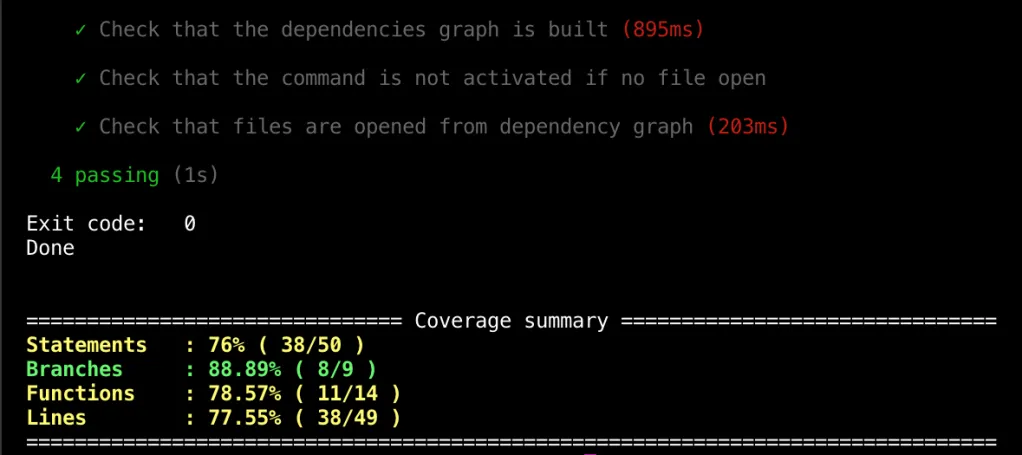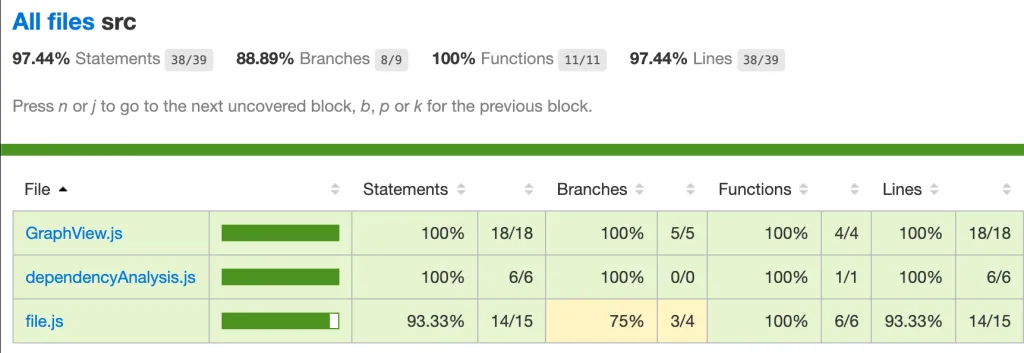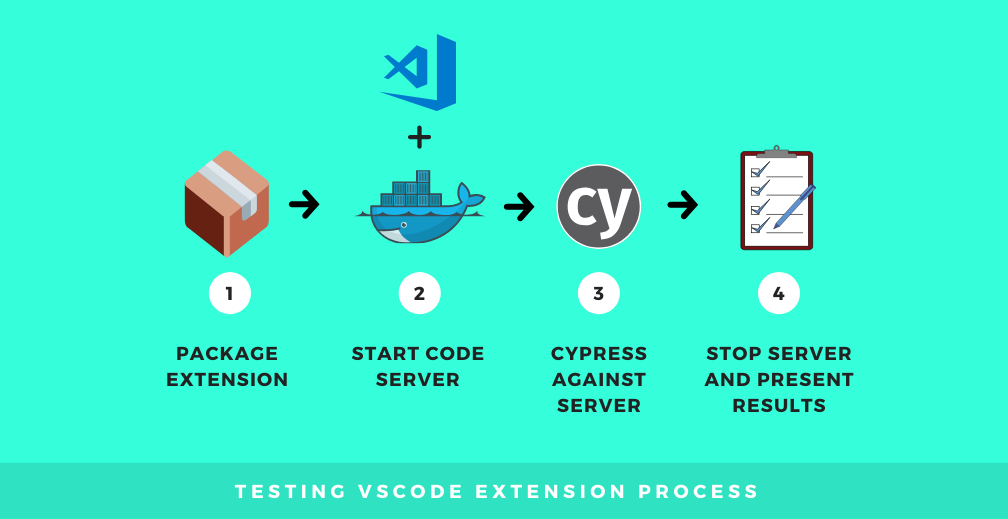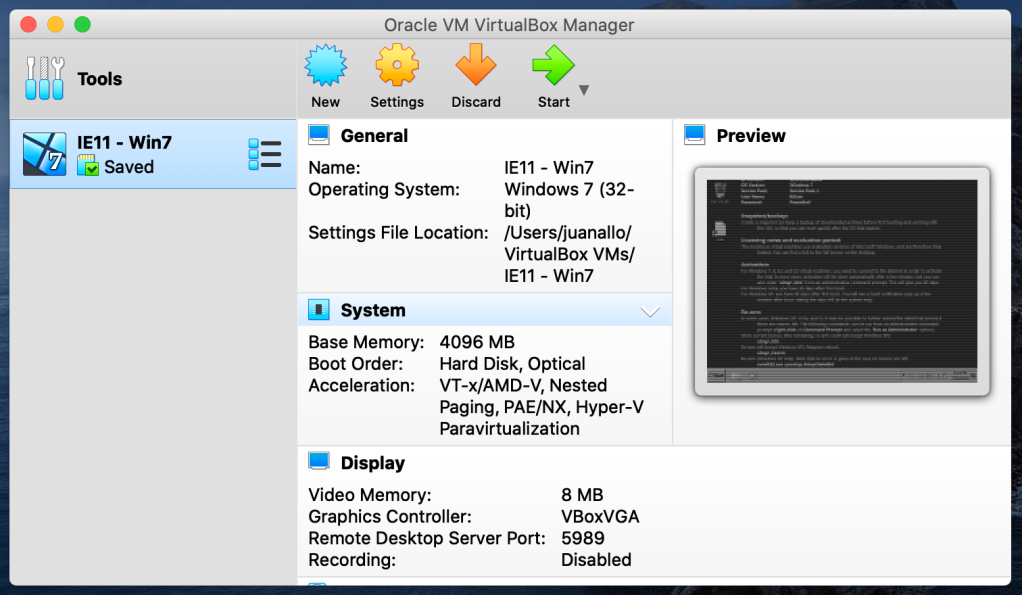Visual Studio Code Extensions: Adding code coverage in 3 easy steps
In this quick tutorial I will show how you can add test coverage to your vscode plugin repository.
VS code extensions use Mocha as a testing library. Mocha has great integration with Istanbul.js and it is super easy to configure it. Here are the steps:
1.Install Istanbul CLI
Add NYC (Istanbul CLI package) to your project:
npm i -D nyc
yarn add -D nyc2. Add coverage script
NYC integrates out of the box with Mocha, so adding coverage is as easy as adding a new script to the package.json:
"scripts": {
"test": "node ./test/runTest.js",
"coverage": "nyc npm run test" //or nyc yarn test
},Now when you run: npm run coverage or yarn coverage NYC will instrument the code, tests will be executed and a report generated.

3. Customize coverage report using configurations
NYC allows a configuration file to customize it. The main options you would want to focus on are: include, exclude, reporter. This 3 will allow to customize what files to include in the report and how it should be generated. For the full list of options check the Readme. Here is an example of a config I use for vscode extensions:
{
"all": true,
"include": ["src/**/*.js"],
"extension": [".js"],
"reporter": ["text", "html"]
}NYC generates some new folders for cache and for reports, so you will need to ignore those in .gitignore file:
.nyc_output/
coverage/What reporter to use?
I like to use 2 reporters: ["text-summary", "html"].
text-summary provides a general summary of the coverage numbers:

html generates a full report that will let you check coverage file by file:

The html report is stored by default in coverage/index.html. Keep in mind that the file structure changes between reporters.
If you want a more verbose summary in the terminal, you can use ["text", "html"]. This will generate a summary in the console too:

You can also check the full list of supported reporters.
Now you are ready to track your progress writing tests and keep your quality accountable.
Enjoy!!!
Catch up with me on X (twitter):@juan_allo
Share
---
Similar Articles

Testing VSCode Extensions with Cypress and code-server

Thoughts on Snapshot Testing

Debugging IE11 with VirtualBox
